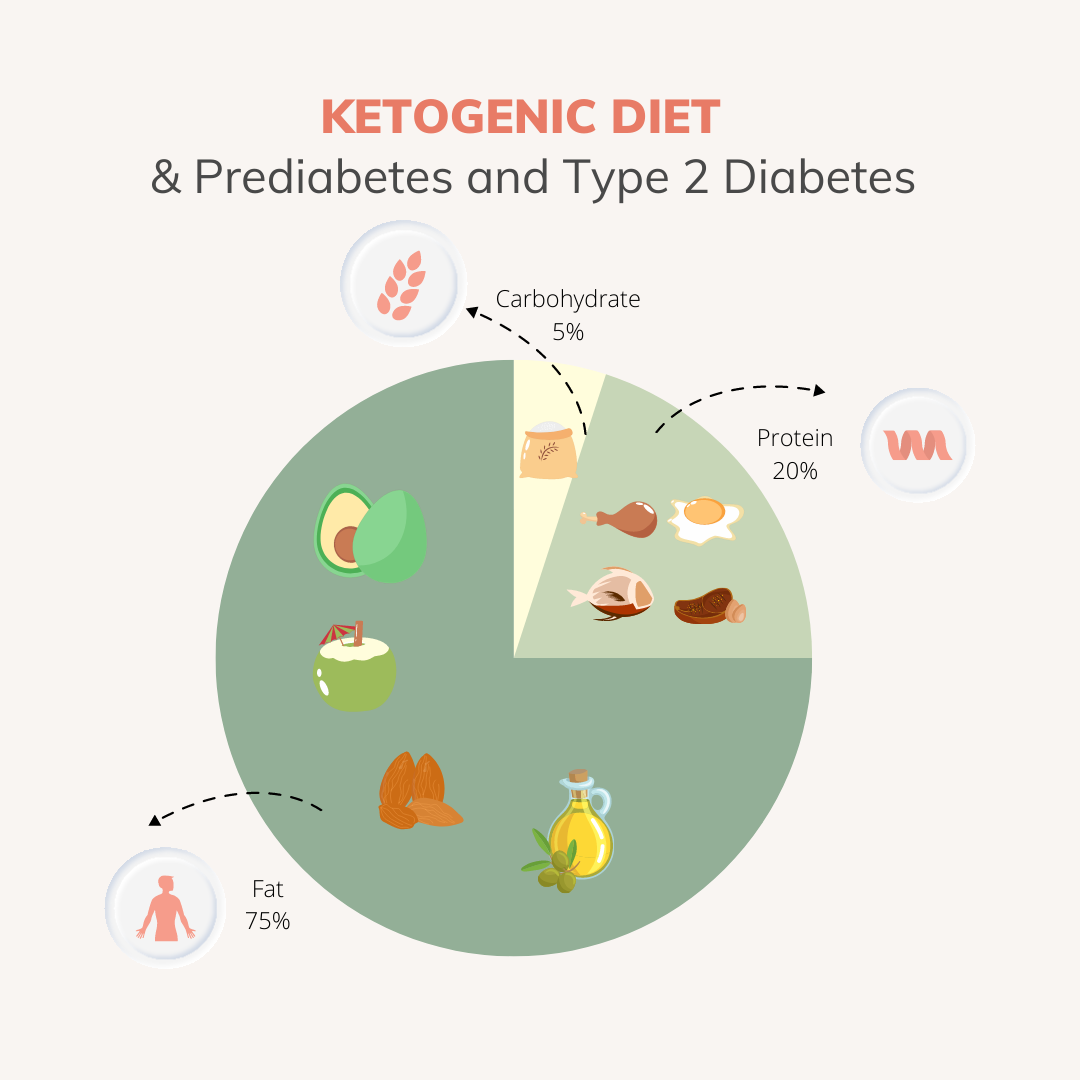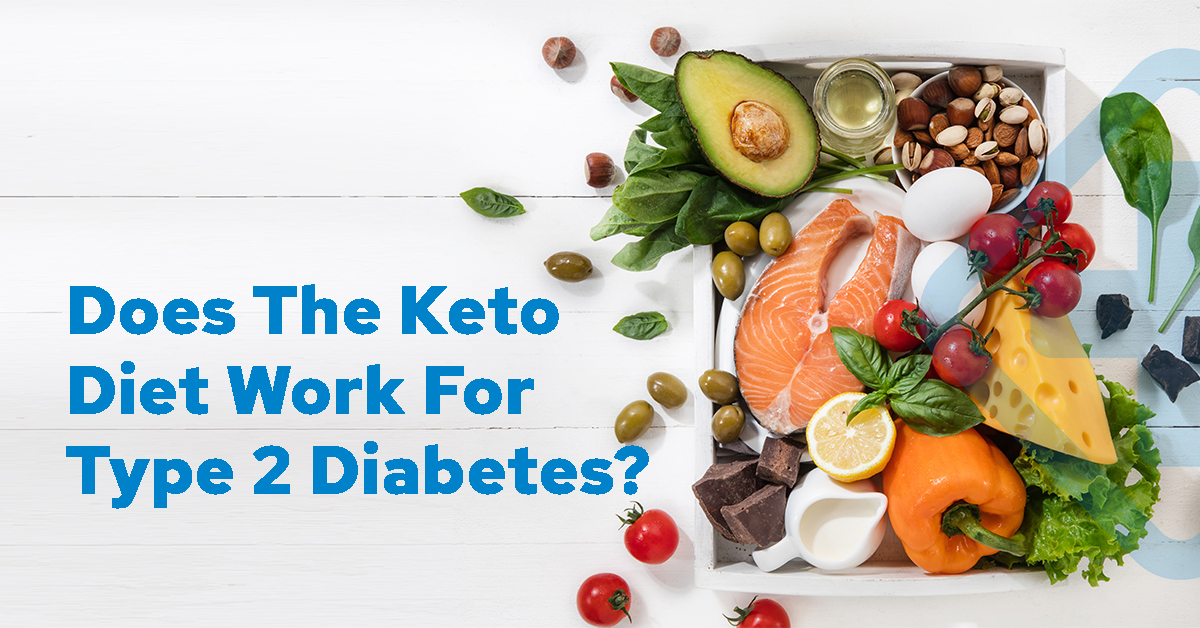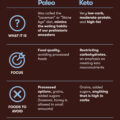Are you curious about the keto diet and whether it’s a good fit for managing diabetes? You’re not alone.
With so much buzz around low-carb living, it’s no wonder you’re exploring how this popular diet might impact your health. If you’re wondering, ‘Is Keto Diet Good for Diabetics,’ understanding how it works can help you feel more in control of your blood sugar levels, with newfound energy and vitality. Sounds appealing, doesn’t it? Before you dive in, it’s crucial to see whether keto could be a safe and effective option for you.
Stick around as we unravel the potential benefits and risks for diabetics, and help you make an informed decision about your health.
Keto Diet Basics
The Keto Diet has gained immense popularity in recent years. Many people are curious about its benefits, especially for diabetics. Understanding the basics of this diet is crucial for anyone considering it.
What Is A Keto Diet?
The Keto Diet is a high-fat, low-carb eating plan. It aims to reduce carbohydrate intake drastically. This forces the body to use fat as its main energy source. The diet includes foods like meat, eggs, cheese, and avocados. Sugary foods and bread are typically avoided.
How Keto Diet Works
In the Keto Diet, the body enters a state called ketosis. During ketosis, the liver converts fat into ketones. These ketones become the body’s main energy source. This process helps stabilize blood sugar levels. For diabetics, stable blood sugar is vital. It may help reduce insulin spikes and crashes. Many find increased energy levels while on this diet.
Diabetes And Dietary Needs
Diabetes affects millions worldwide, requiring careful dietary choices. Eating well helps manage blood sugar levels. Understanding different diabetes types is crucial. It guides dietary adjustments for better health outcomes.
Understanding Diabetes Types
There are two main types of diabetes. Type 1 diabetes occurs when the body produces little or no insulin. This type often appears in children and young adults. Type 2 diabetes is more common in adults. It happens when the body does not use insulin properly. Both types require careful monitoring of blood sugar levels.
Gestational diabetes affects some women during pregnancy. It usually disappears after childbirth. But it can increase the risk of developing Type 2 diabetes later. Each type requires unique dietary considerations to manage blood sugar levels effectively.
Dietary Considerations For Diabetics
Managing diabetes with diet involves balance and moderation. Carbohydrates impact blood sugar levels the most. Choosing whole grains, fruits, and vegetables is important. These foods have a lower glycemic index. They cause a slower rise in blood sugar.
Proteins and healthy fats are crucial too. They help stabilize blood sugar levels. Lean meats, fish, nuts, and seeds are good choices. Portion control is vital. Eating smaller, balanced meals throughout the day helps maintain stable blood sugar.
Staying hydrated is essential. Water supports overall health and aids digestion. Limiting sugar-sweetened beverages is wise. They can spike blood sugar levels quickly.
Benefits Of Keto For Diabetics
The keto diet has gained attention for its potential benefits for diabetics. This low-carb, high-fat diet might help manage diabetes effectively. It focuses on reducing carbohydrates and increasing healthy fats. This approach can lead to several health benefits. Let’s explore how keto can be beneficial for diabetics.
Blood Sugar Control
Carbohydrates significantly impact blood sugar levels. By limiting carbs, the keto diet helps stabilize blood sugar. This can reduce the frequency of blood sugar spikes. Consistent blood sugar levels are crucial for diabetics. They help in minimizing health complications.
Weight Management
Many diabetics struggle with weight management. The keto diet can aid in weight loss. It promotes fat burning by using fat as a primary energy source. This can lead to reduced body weight. Maintaining a healthy weight is beneficial for managing diabetes.
Improved Insulin Sensitivity
Insulin sensitivity is vital for diabetics. The keto diet can help improve it. Better insulin sensitivity means the body uses insulin more effectively. This can lead to better blood sugar control. Enhanced insulin sensitivity can reduce the risk of complications.

Credit: kwiketo.com
Potential Risks And Concerns
The keto diet is popular for weight loss and managing diabetes. Yet, it’s not without risks. Diabetics should consider potential concerns before starting this low-carb plan. Understanding these risks can help individuals make informed decisions.
Nutrient Deficiencies
The keto diet limits certain food groups. This restriction might lead to nutrient deficiencies. Essential vitamins and minerals could be lacking. For diabetics, maintaining a balanced diet is crucial. Insufficient nutrients can affect overall health. It’s important to monitor nutrient intake closely.
Ketoacidosis Risk
Diabetics face a unique risk called ketoacidosis. This occurs when ketone levels rise dangerously. It can be life-threatening if not managed. Monitoring blood sugar and ketone levels is essential. Ketoacidosis requires immediate medical attention. Diabetics should be aware of symptoms.
Long-term Health Impact
Long-term effects of the keto diet are still being studied. Some health experts express concern about prolonged use. Diabetics need to consider potential impacts on heart health. High-fat diets might increase cholesterol levels. Regular health check-ups are advisable.
Scientific Studies And Findings
The keto diet has gained attention in managing diabetes. Scientific studies explore its potential benefits. Researchers investigate how a low-carb, high-fat diet affects blood sugar levels. The findings are promising, yet complex. Both supportive and critical views exist in the scientific community.
Research Supporting Keto For Diabetes
Several studies suggest keto helps control blood sugar. A study found improved insulin sensitivity in participants. Another research highlights reduced HbA1c levels, a marker for long-term glucose control. Keto may also aid weight loss, benefiting type 2 diabetics. Researchers note fewer glucose fluctuations in keto followers. Such effects are encouraging for managing diabetes.
Critiques And Limitations Of Current Studies
Not all studies agree on keto’s benefits for diabetics. Some research lacks long-term data. Short study durations limit findings. Sample sizes in many studies are small. This affects the reliability of results. Critics argue keto might not suit everyone. Individual responses to the diet vary. Nutritional balance concerns also arise with keto. Future research needs to address these limitations.
Practical Tips For Diabetics On Keto
Adopting a keto diet can be challenging for diabetics. This low-carb, high-fat approach needs careful attention. With the right strategies, it can help manage blood sugar levels effectively. Here are some practical tips to guide diabetics on a keto journey.
Meal Planning Strategies
Plan meals to maintain stable blood sugar levels. Focus on whole foods like vegetables, lean proteins, and healthy fats. Avoid processed foods and hidden sugars. Create a weekly menu to avoid last-minute unhealthy choices. Prepare meals in advance to ensure balanced nutrition.
Monitoring Health Indicators
Regularly check blood sugar levels. Monitor ketone levels to ensure they remain safe. Keep track of weight and energy levels. Use a journal to note any changes in symptoms. This helps in understanding the diet’s impact on health.
Consulting Healthcare Professionals
Consult a healthcare provider before starting a keto diet. Discuss any existing medical conditions. Get personalized advice based on health needs. Regular check-ups are crucial to monitor progress. Stay informed about potential risks and benefits.
Alternative Diets For Diabetics
Diabetes management often involves choosing the right diet to control blood sugar levels. Many alternatives exist, each offering unique benefits. These options help diabetics maintain their health and well-being. Understanding these diets can be crucial for effective diabetes care.
Comparing Keto With Other Diets
The keto diet focuses on high fats and low carbs. This approach can lower blood sugar and improve insulin sensitivity. But how does it compare to other diets? The Mediterranean diet emphasizes whole grains and healthy fats. It offers heart health benefits but includes more carbs than keto. The DASH diet, designed to lower blood pressure, includes fruits and vegetables. This diet is rich in nutrients but may not reduce carbs as much as keto.
Low-carb diets, similar to keto, reduce carbohydrate intake. They help stabilize blood sugar levels effectively. Each diet has its strengths and weaknesses. Comparing these can help diabetics find the best fit for their lifestyle.
Personalizing Dietary Choices
Every diabetic is unique. Personalizing dietary choices is essential for optimal health. Factors like age, weight, and activity level play a role. Personal preferences and cultural factors also influence diet choices. Consulting with healthcare professionals can aid in creating a tailored plan. Testing different diets can show what works best for an individual.
Monitoring blood sugar levels after meals helps understand the body’s reaction. A personalized diet can lead to better diabetes management. It ensures a balanced approach that fits individual needs.

Credit: bluenethospitals.com

Credit: www.amazon.com
Frequently Asked Questions
What Is The Keto Diet For Diabetics?
The keto diet is a low-carb, high-fat eating plan. It aims to reduce blood sugar levels and improve insulin sensitivity. Diabetics often use it to manage their condition. It’s essential to consult a healthcare provider before starting.
Can Keto Diet Lower Blood Sugar?
Yes, the keto diet can lower blood sugar levels. By reducing carbohydrate intake, the body uses fat for energy. This process helps stabilize blood sugar. However, individual results may vary. Always consult with your doctor before making dietary changes.
Are There Risks For Diabetics On Keto?
There are risks for diabetics following the keto diet. These include potential nutrient deficiencies and ketoacidosis. Monitoring is crucial to avoid complications. Consulting with a healthcare professional ensures safe practice. Regular check-ups and adjustments may be needed.
How Does Keto Affect Insulin Sensitivity?
Keto diet can improve insulin sensitivity. Lower carb intake reduces insulin spikes. This helps the body use insulin more efficiently. Improved sensitivity aids in better blood sugar management. It’s recommended to discuss with a healthcare provider before starting.
Conclusion
Deciding if the keto diet suits diabetics is personal. It depends on individual needs and health goals. This diet may help some control blood sugar levels. Others might find it challenging. Consulting a healthcare professional is crucial. They can provide personalized advice.
The keto diet isn’t a one-size-fits-all solution. Balance and moderation are key in managing diabetes. Always prioritize what works best for your body. Remember, a healthy lifestyle includes various factors. It’s not just about food choices. Stay informed and proactive for optimal health.


